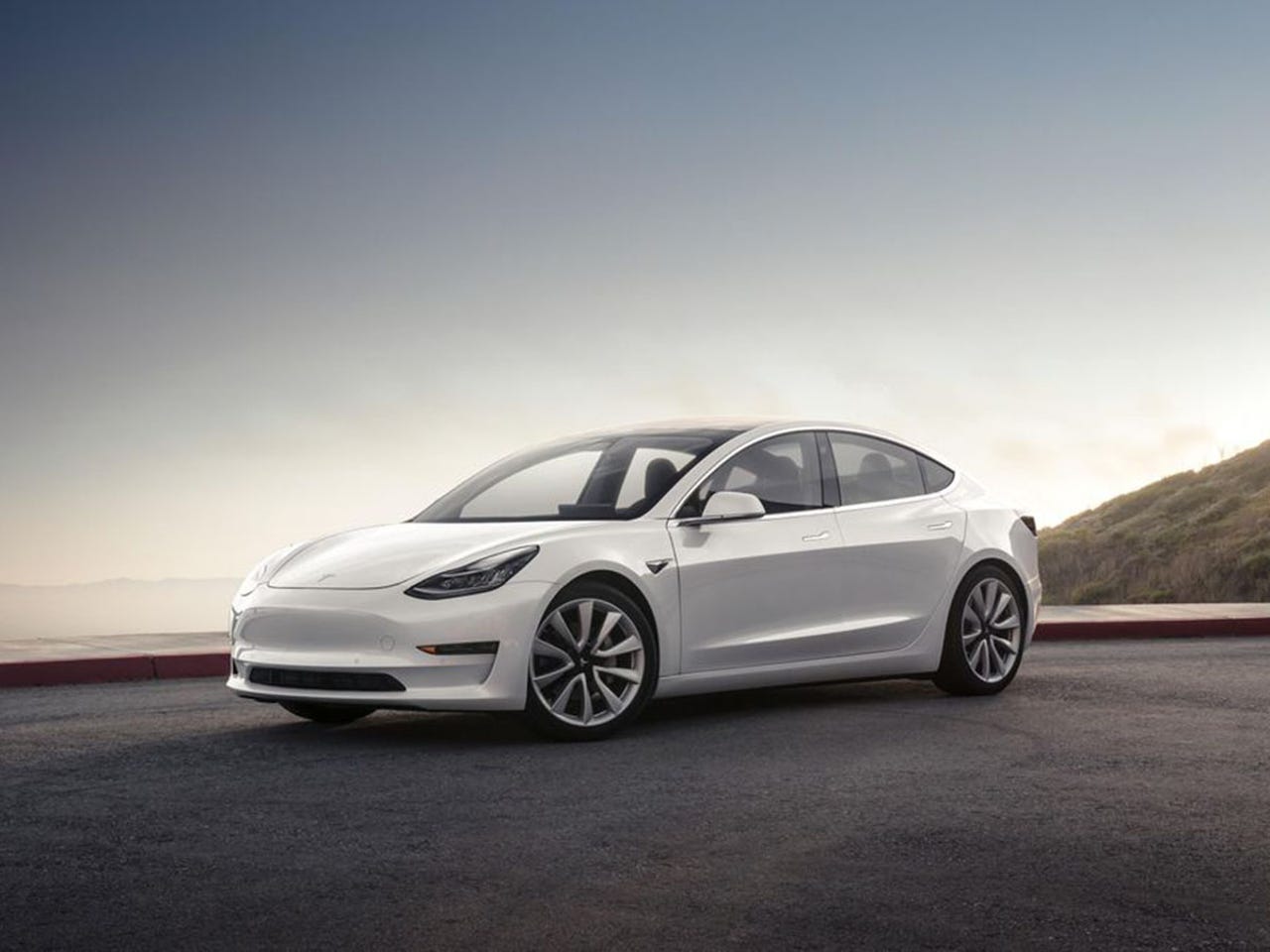The 19 biggest tech successes of 2017 (so far)


Tesla Model 3
To be fair, thanks to manufacturing delays, only 260 Model 3s have been built to date -- fewer than expected. But with more than 300,000 pre-orders on the books, there's little question that this (relatively) affordable, volume-produced, self-driving electric car will have a transformative effect on how we get from one place to another... eventually.
CNET's first impression: "This is an EV that drives as good as it looks and is competitively priced."
Ethereum
Bitcoin may still be the most well-known cryptocurrency, but relative newcomer Ethereum has been the crypto coin story of 2017, thanks to its support of smart contracts; growing interest from big business; and 4,800 percent leap in value this year.
A group of Fortune 500 companies, including Samsung, Intel and J.P. Morgan, has formed the Enterprise Ethereum Alliance to build uses for the tech.
Nintendo Switch
Given the tepid sales of its previous Wii U console and a decade-long slide of the company's stock price, gaming giant Nintendo was no doubt desperate for a hit when it released its Switch in March 2017.
And that's what the company got: The handheld/home console hybrid has been sold out for months and garnered positive reviews from the gaming press.
The Legend of Zelda: Breath of the Wild
Of course, no gaming system can be a success without solid software titles. Nintendo's biggest success of the year is arguably The Legend of Zelda: Breath of the Wild, which has sold more than 3.5 million copies as of August 2017.
Breath of the Wild is a critical smash, heralded as one of the best Zelda titles ever created. It earned an ultra-rare perfect review score on our sister site GameSpot.
Falcon 9 relaunch
SpaceX made history this year with the relaunch of its Falcon 9 rocket. The flight marks the first time a single rocket has been reused for multiple missions, a major step toward making space travel cost effective.
DeepMind AI
First, the computers came for our chess champions. Now Google's DeepMind Alpha Go toppled Ke Jie, the world's best player of Go, the ancient Chinese game. DeepMind was initially given a database of 30 million Go moves and developed a strategy by playing against itself.
More advances in CRISPR
Scientists have made dramatic advances in genetic research using CRISPR gene editing. In one promising Temple University study, researchers used CRISPR to delete HIV DNA from the genome of infected mice. A worldwide group of scientists, meanwhile, used it to edit the dangerous MYBPC3 mutation out of a human embryo, which would prevent it from being passed on to future generations.
Ryzen Threadripper 1950X
Intel has long dominated the high-end desktop processor market, but AMD's new Ryzen Threadripper chip represents a worthy challenge to the king. Intel's new Core i9-7980XE chip may offer two more cores than the 16-core Threadripper 1950X, but AMD's version comes in at just $1,000 -- half the price of its rival.
A big (aerial) leap forward for drones
Drones found an important new use: saving lives. The Federal Aviation Administration authorized drone pilots to assist with hurricane relief efforts in Florida, Texas and Puerto Rico, surveying damage and locating people for rescue. Power repair crews and insurance adjusters have leaned heavily on the tech during the recovery as well.
The $10 Raspberry Pi Zero W
Launched in February 2017, the Raspberry Pi Zero W is a single-board computer that offers a 1GHz single-core CPU, 512MB RAM, Micro-USB support, a camera connector and wireless LAN and Bluetooth connectivity, all for just $10.
Apple A11 Bionic chip
Apple's latest and greatest six-core mobile processor not only blows away the Snapdragon 835 in benchmark tests, but also measures 30 percent smaller than the previous four-core A10 design.
The end of the Cassini-Huygens mission
On September 15, NASA deliberately plunged the Cassini probe into Saturn's atmosphere, marking the end of its two-decade mission.
After revealing the potential for life on Saturn's moons, the probe's so-called "grand finale" was engineered to prevent introducing biological contamination there.
Apple W1 chip
Though Apple introduced its fast-connecting W1 mobile application processor in 2016, it wasn't until this year that it truly achieved mass availability. The chip, found in select Beats headphones and AirPods, also improves Bluetooth range and battery life.
Six-cent solar
Solar power reached a major cost milestone in 2017: According to the US Department of Energy (DOE), utility-grade solar panels now produce energy at a cost of 6 cents per kilowatt-hour in Kansas City, already meeting goals for 2020.
For now, solar supplies just between 1 and 2 percent of U.S. electricity demand. But as costs continue to fall, the DOE notes, solar now represents one-third of all new electrical generating capacity in the U.S.
The Handmaid's Tale
In a streaming space dominated by Netflix and Amazon, Hulu often takes a back seat as an also-ran. But that changed in 2017 with the release of The Handmaid's Tale, a drama about a misogynist dystopia.
In addition to being Hulu's most-watched launch in history, the streaming-only show swept the Emmys to win five awards, including Outstanding Drama Series.
8th generation Intel Kaby Lake R chips
Intel's new generation of laptop chips, unveiled in August, promise a 40 percent generation-over-generation performance boost. The i5 and i7 chips will continue to use a 14-nanometer architecture, but with two extra cores.
Samsung Galaxy S8
Though the Samsung Galaxy 7 release was plagued with problems -- exploding phones, anyone? -- the new, safer Galaxy S8 was met with raves. Our sister site CNET praised its advanced specs and "stunning design," calling it "the best-looking phone around" in its review.
Plus, it still has a headphone jack. So there's that.
Snapchat Spectacles
Designed for use with the Snapchat multimedia messaging app, Spectacles smartglasses record video from the wearer's point of view.
Though the $130 specs are a bit of a novelty -- Snap CEO Evan Spiegel says he made the product "because it's fun" -- the wearable has been much better received than the ill-fated Google Glass. Roughly 150,000 pairs have been sold.
Facial recognition technology
It isn't necessarily new, but this tech made major leaps forward as a security feature in 2017 thanks to Apple.
The company switched out its fingerprint sensor with facial recognition technology in the iPhone X. And in China, Ant Financial launched a pay-by-face option at Kentucky Fried Chicken restaurants, with no wallet or phone required.